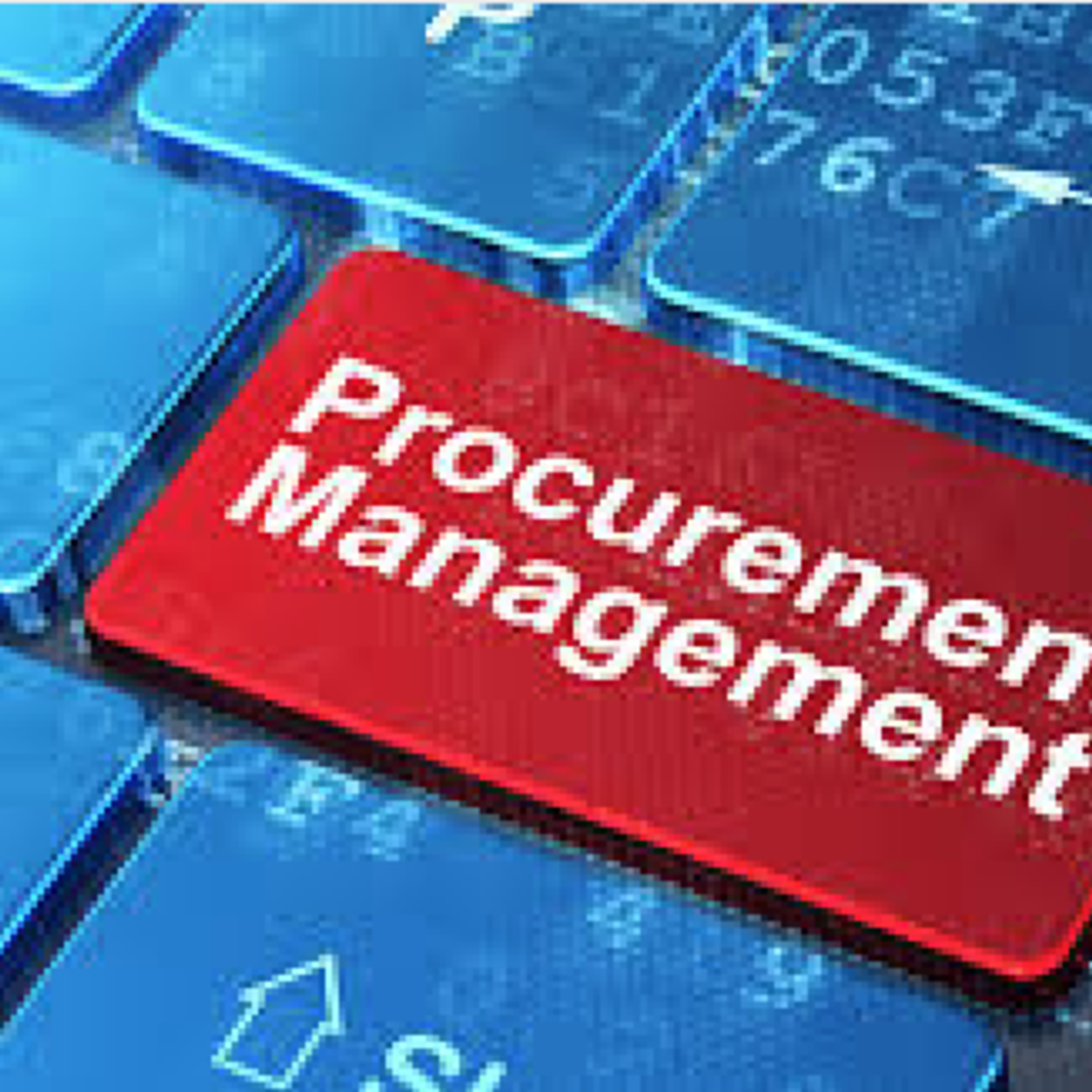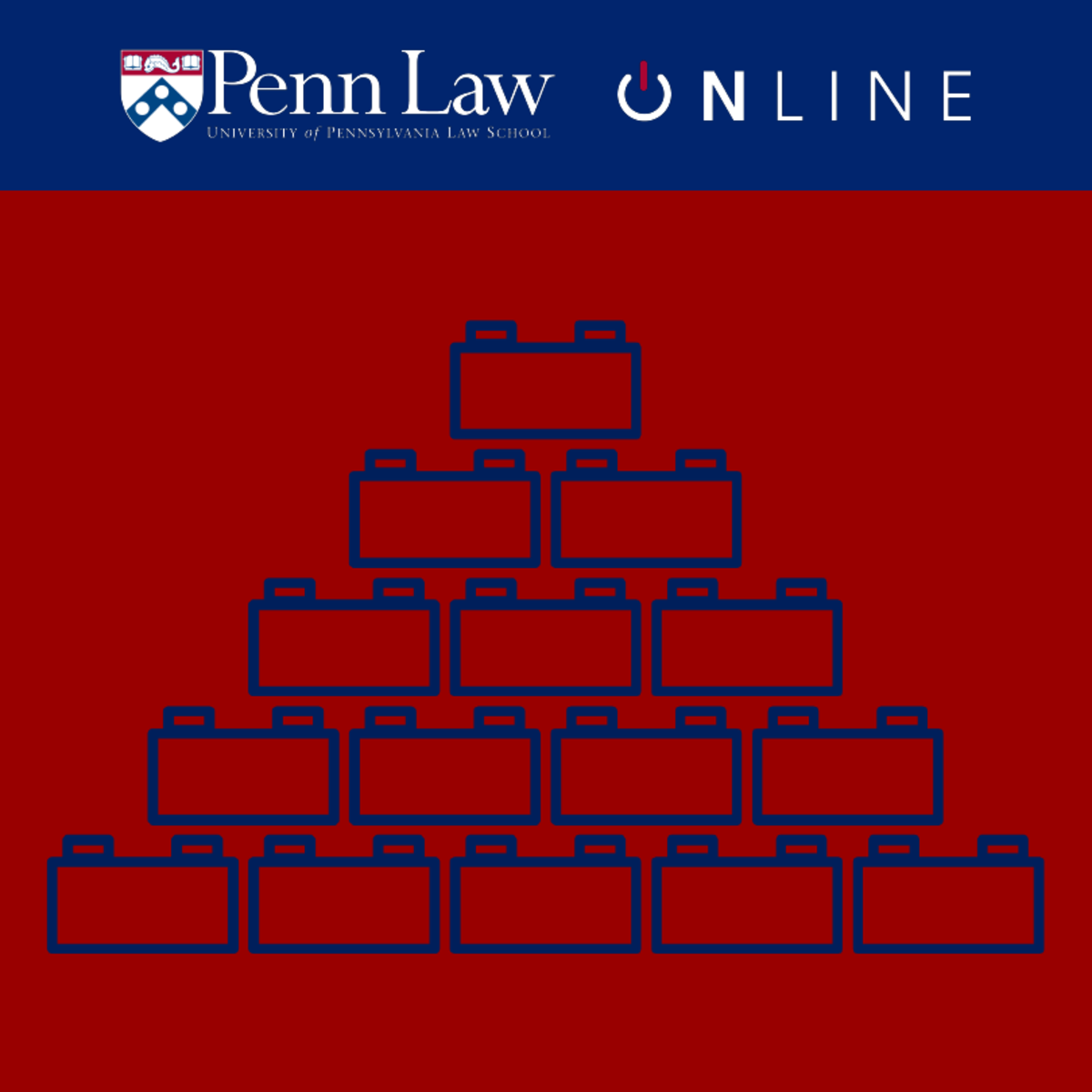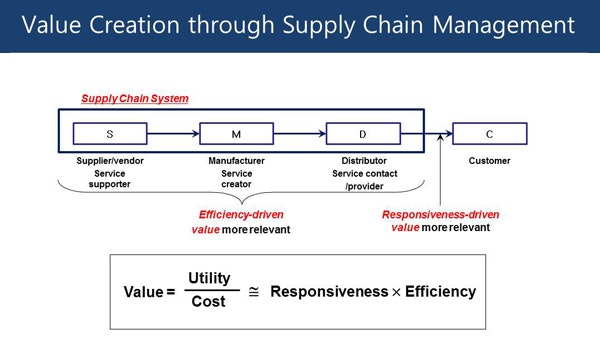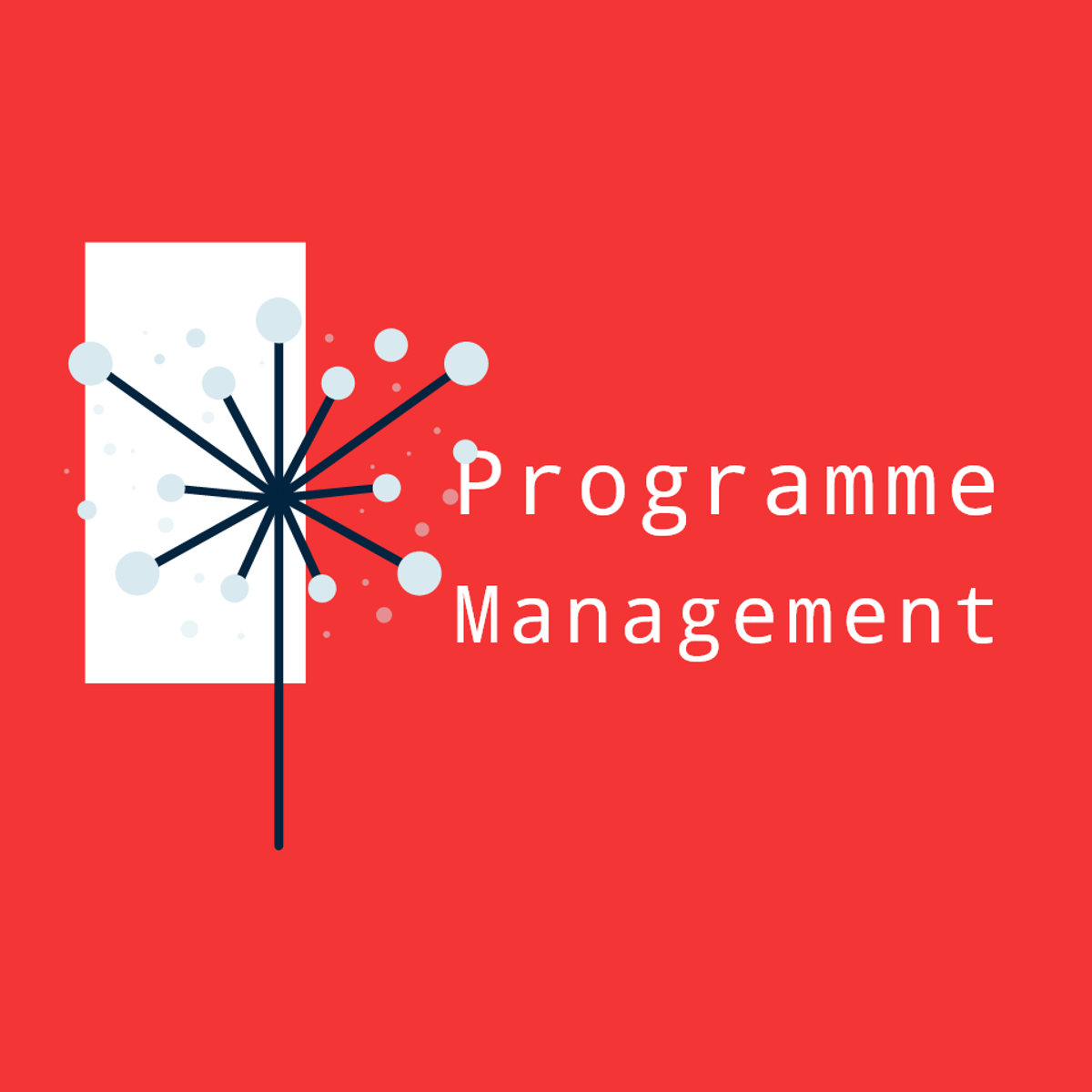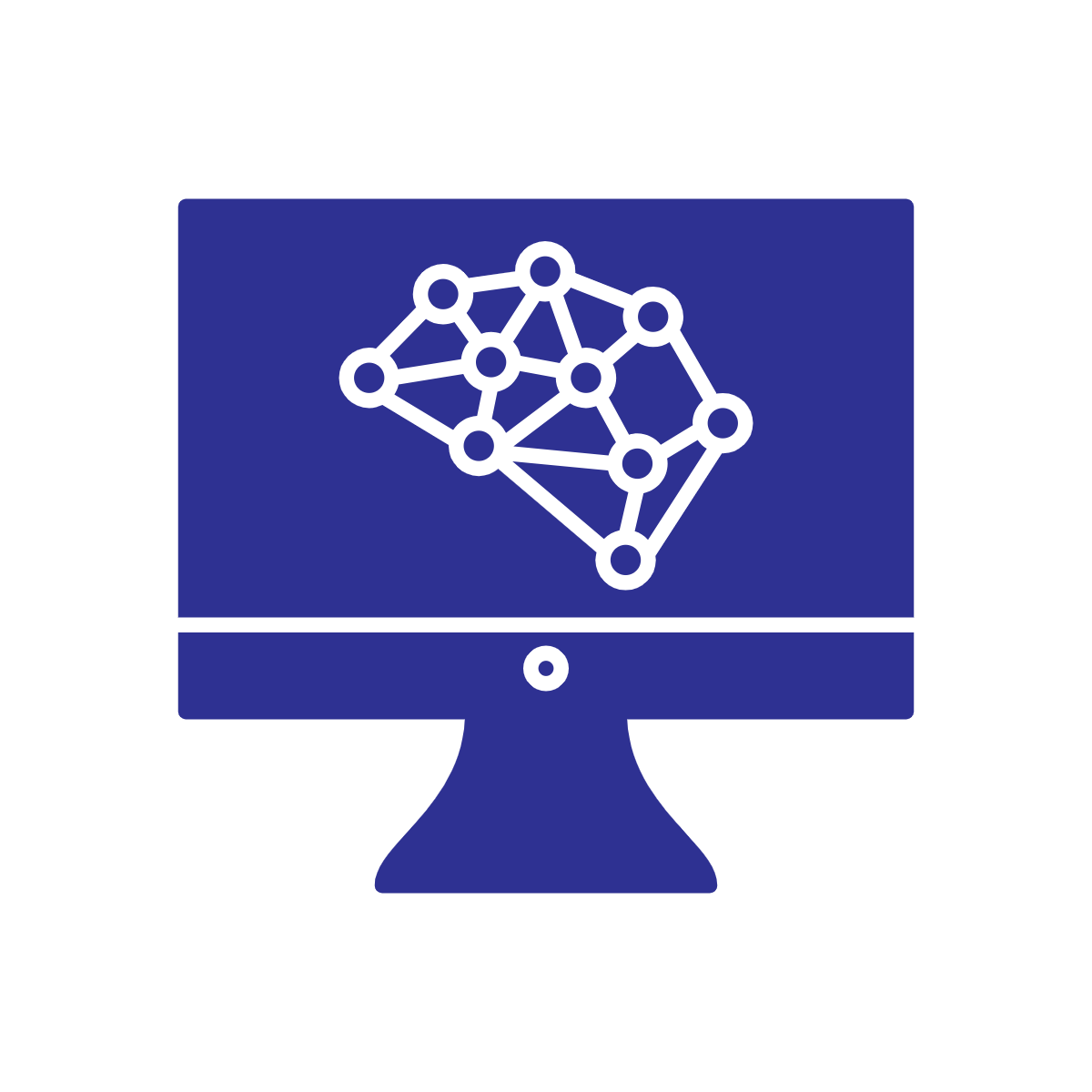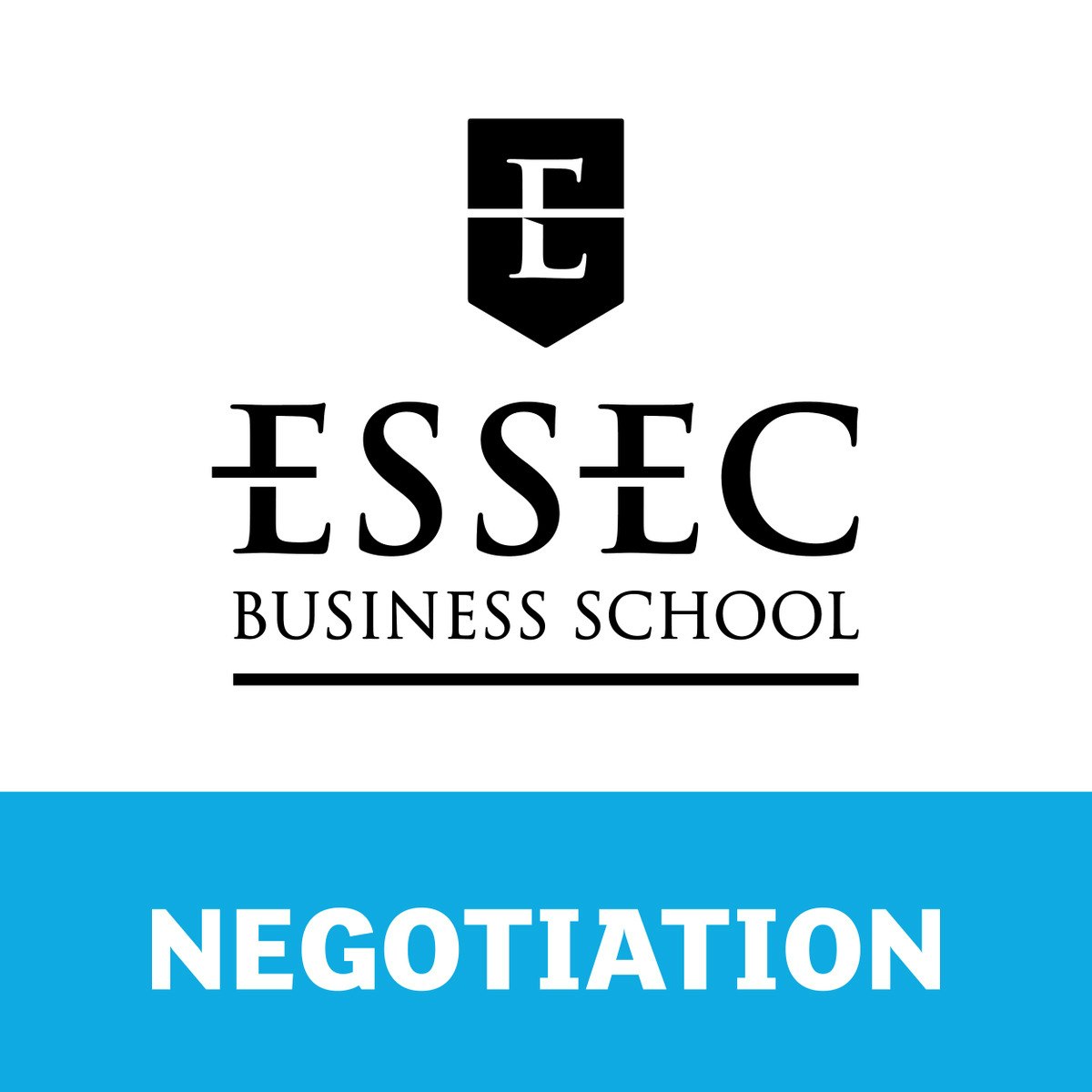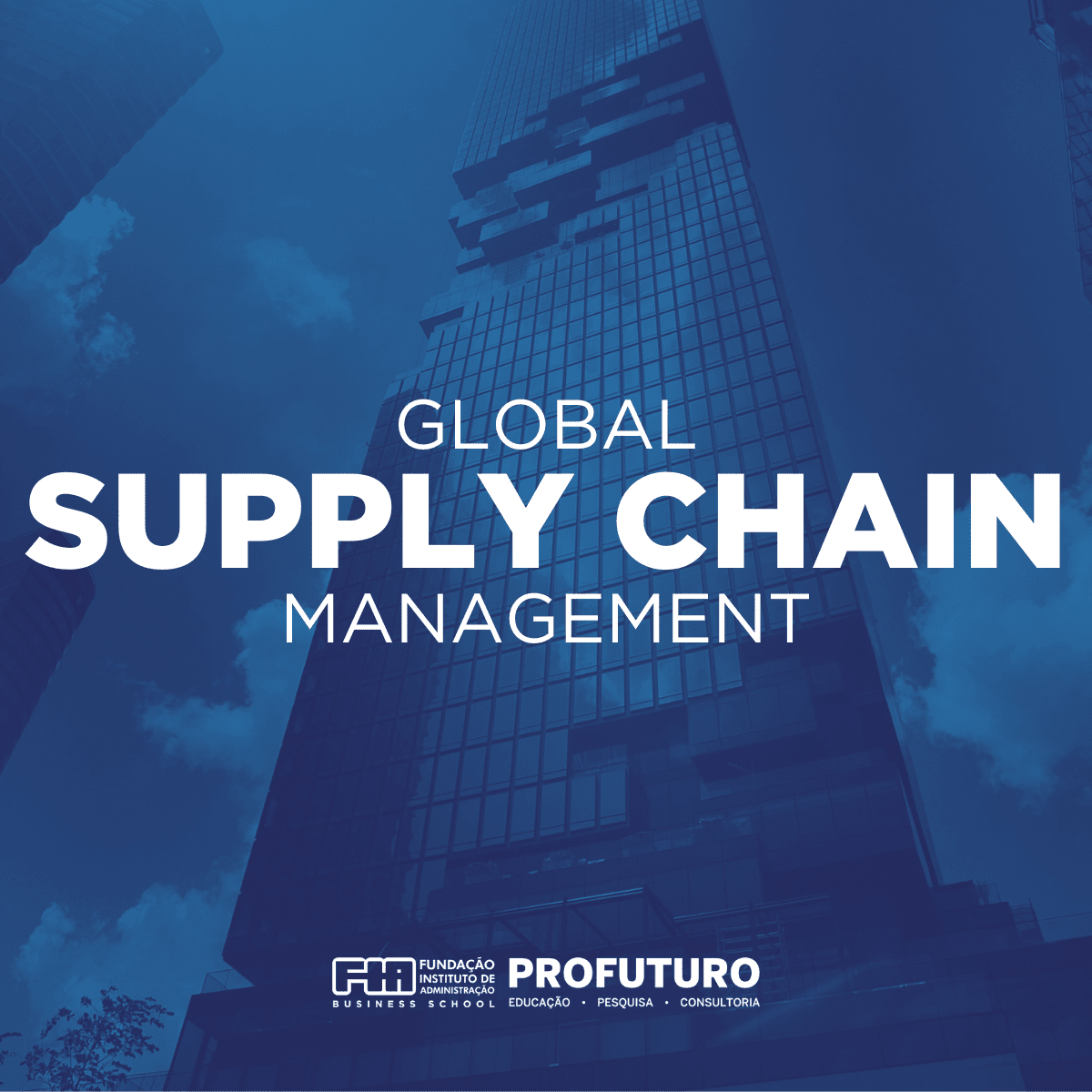Procurement Manager
A Career Guide to Becoming a Procurement Manager
A Procurement Manager plays a crucial role in an organization's success by overseeing the acquisition of goods, services, and works from external sources. They are strategic thinkers responsible for ensuring that the company obtains what it needs to operate effectively, efficiently, and at the best possible value. This involves much more than just placing orders; it encompasses the entire lifecycle of sourcing, negotiation, contracting, and managing relationships with suppliers.
Working as a Procurement Manager can be highly engaging. You'll find yourself at the intersection of various business functions, collaborating with departments like finance, operations, legal, and marketing. The role demands sharp negotiation skills to secure favorable terms and robust analytical abilities to assess market trends, supplier performance, and potential risks. It's a dynamic field where you directly contribute to the company's bottom line and operational resilience.
Overview of Procurement Manager Roles
This section provides a foundational understanding of what the Procurement Manager role entails, where these professionals work, and how the role differs from similar positions in the supply chain field.
What is a Procurement Manager?
A Procurement Manager, sometimes called a Purchasing Manager, is responsible for managing an organization's sourcing capabilities. Their primary objective is to acquire necessary goods, services, or works (like construction) efficiently and cost-effectively. This means finding the best value, which considers not only price but also quality, delivery timelines, reliability, and supplier innovation.
Core goals include managing costs and achieving savings, mitigating supply chain risks (like supplier defaults or geopolitical instability), ensuring the quality and reliability of procured items, and maintaining ethical and sustainable sourcing practices. They strategize how the organization spends money externally to support its overall objectives.
Essentially, Procurement Managers ensure the business has what it needs, when it needs it, from the right suppliers, under the best possible terms, while adhering to company policies and relevant regulations.
Central Duties in Supply Chain and Vendor Oversight
The day-to-day responsibilities of a Procurement Manager are diverse. They conduct market research to identify potential products and suppliers, analyzing factors like cost, quality, delivery schedules, and supplier reputation. A key part involves running tendering processes (like Request for Proposals or RFPs), evaluating bids, and recommending supplier selection.
Negotiating contracts is a cornerstone of the role, aiming to secure advantageous terms and conditions. Once contracts are in place, Procurement Managers oversee supplier relationships, monitor performance against agreed-upon metrics, and manage any issues that arise. They are integral to the broader supply chain, ensuring that procurement activities align with logistics, inventory, and production planning.
They often manage a team of procurement specialists or buyers, guiding their activities and professional development. This requires strong leadership and communication skills to coordinate efforts effectively.
Here are some courses that delve into the framework and basics of supply chain and procurement.
You may also find these topics helpful for understanding the broader context.
Industries Employing Procurement Managers
Procurement Managers are essential across nearly every industry. Manufacturing companies rely heavily on them to source raw materials, components, and machinery. Retail businesses need them to acquire products for resale and manage vast supplier networks.
Government agencies (at federal, state, and local levels) employ procurement professionals to manage public spending on everything from office supplies to large infrastructure projects, often under strict regulatory guidelines. The healthcare sector needs them for sourcing medical equipment, pharmaceuticals, and services.
Technology companies procure hardware components, software licenses, and professional services. Other sectors like construction, energy, finance, hospitality, and non-profits also depend on skilled Procurement Managers to manage their external spend effectively.
Related Roles: Procurement Manager vs. Others
While related, the Procurement Manager role has distinct responsibilities compared to other supply chain positions. A Supply Chain Manager typically has a broader scope, overseeing the entire flow of goods and services from raw materials to the final customer, including logistics, warehousing, inventory management, and sometimes procurement.
A Purchasing Agent or Buyer often reports to a Procurement Manager and focuses more on the transactional aspects of purchasing, such as placing orders, tracking deliveries, and resolving routine supplier issues. Their focus is often more tactical than strategic.
A Logistician concentrates specifically on the movement and storage of goods, including transportation management, warehousing operations, and distribution network design.
While there can be overlap, the Procurement Manager typically holds a more strategic position focused on supplier relationships, negotiation, risk management, and optimizing the value obtained from external spending.
Key Responsibilities of a Procurement Manager
This section details the core functions and duties that define the Procurement Manager role, offering insights into the practical aspects of the job.
Supplier Sourcing and Relationship Management
A fundamental responsibility is identifying, evaluating, and selecting suppliers. This involves market research, understanding supplier capabilities, assessing financial stability, and ensuring suppliers align with the company's quality and ethical standards. Procurement Managers develop criteria for evaluation and often lead cross-functional teams in the selection process.
Building and maintaining strong, collaborative relationships with key suppliers is crucial. This goes beyond transactional interactions to foster partnerships that can lead to innovation, improved service, and better value. Effective supplier relationship management (SRM) involves regular communication, performance reviews, and joint problem-solving.
Managing the supplier base strategically includes segmenting suppliers based on their importance and risk, developing specific relationship strategies for each segment, and continuously monitoring the supply market for new opportunities or potential threats.
These courses cover aspects of sourcing and managing supplier relationships.
For further exploration, consider these topics.
Negotiation, Contracts, and Cost Optimization
Negotiation is a core skill for Procurement Managers. They lead negotiations with suppliers to agree on pricing, payment terms, delivery schedules, quality standards, service levels, and other contractual conditions. The goal is to secure the best possible deal that meets the organization's needs while fostering a fair relationship with the supplier.
Drafting, reviewing, and managing contracts is another key duty. Procurement Managers work closely with legal teams to ensure contracts accurately reflect negotiated terms, protect the organization's interests, and comply with relevant laws. They are responsible for monitoring contract compliance and managing renewals or terminations.
Cost optimization is a constant focus. This involves not just negotiating lower prices but also identifying opportunities for total cost reduction through process improvements, demand management, value analysis, and exploring alternative sourcing options. Achieving cost savings without compromising quality or increasing risk is paramount.
Develop your negotiation and contract management skills with these resources.
This book provides valuable insights into the value proposition of procurement.
Explore the topic of cost reduction further.
Supply Chain Risk Mitigation
Procurement Managers play a vital role in identifying, assessing, and mitigating risks within the supply chain. These risks can range from supplier financial instability, quality failures, and delivery delays to geopolitical events, natural disasters, cybersecurity threats, and fluctuations in raw material prices.
Developing risk mitigation strategies is essential. This might involve diversifying the supplier base (avoiding over-reliance on a single supplier or region), developing contingency plans, requiring suppliers to have robust business continuity plans, negotiating protective contract clauses, and closely monitoring supplier performance and market conditions.
Understanding the end-to-end supply chain and potential vulnerabilities is crucial. Procurement Managers collaborate with other departments, like logistics and operations, to build resilience and ensure the continuous supply of critical goods and services.
Learn more about managing supply chain risks and building resilience.
This book offers a deep dive into supply chain risk.
Ensuring Compliance and Adherence to Standards
Adherence to legal, regulatory, and internal policy requirements is non-negotiable in procurement. Procurement Managers must ensure all purchasing activities comply with relevant laws, including contract law, trade regulations (import/export controls), anti-bribery legislation (like the FCPA or UK Bribery Act), and industry-specific regulations.
They are responsible for implementing and enforcing internal procurement policies and procedures, ensuring transparency, fairness, and consistency in sourcing and supplier interactions. This includes maintaining accurate records, managing contract files, and ensuring proper authorization processes are followed.
Staying informed about changes in regulations and company policies is crucial. They often work with legal, compliance, and internal audit teams to ensure the procurement function operates within established guidelines and ethical frameworks.
Explore compliance and contract law further with these courses.
Understanding contract breaches is also important.
Promoting Sustainability and Ethical Sourcing
Increasingly, Procurement Managers are tasked with incorporating Environmental, Social, and Governance (ESG) considerations into their sourcing decisions. This involves evaluating suppliers based on their environmental impact (e.g., carbon footprint, waste management), social practices (e.g., labor standards, diversity policies), and governance structures (e.g., ethical conduct, transparency).
Developing and implementing sustainable procurement strategies helps organizations reduce their environmental footprint, enhance their brand reputation, mitigate risks associated with unethical practices, and meet stakeholder expectations. This might involve setting specific sustainability requirements for suppliers, prioritizing suppliers with strong ESG performance, and promoting circular economy principles.
Ethical sourcing ensures that goods and services are procured in a responsible manner, respecting human rights, avoiding corruption, and promoting fair labor practices throughout the supply chain. Procurement Managers champion these principles within their organizations and supplier networks.
These courses address the growing importance of ESG and sustainability in procurement.
Strategic sourcing often incorporates these ethical considerations.
Charting Your Course: The Procurement Manager Career Path
This section outlines the typical journey towards becoming a Procurement Manager, including entry points, potential transitions, and the importance of continuous development.
Starting Your Procurement Journey: Entry-Level Roles
Most Procurement Managers begin their careers in foundational roles within the purchasing or supply chain department. Common entry-level positions include Procurement Assistant, Purchasing Coordinator, Buyer, or Procurement Analyst. These roles provide essential exposure to the basics of procurement processes.
In these initial positions, individuals learn about creating purchase orders, tracking shipments, communicating with suppliers about routine matters, maintaining records, and supporting senior procurement staff. They develop an understanding of internal procedures, basic negotiation tactics, and the importance of accuracy and attention to detail.
Gaining experience in these roles builds a solid understanding of the operational aspects of procurement, which is crucial before moving into more strategic management positions. A foundational course can kickstart this journey.
This entry-level career is a common starting point.
Pivoting into Procurement: Mid-Career Transitions
Procurement is a field that welcomes professionals transitioning from related areas. Individuals with backgrounds in finance, accounting, operations management, logistics, engineering, or even sales often possess valuable transferable skills. Analytical skills from finance, process understanding from operations, logistical knowledge, or negotiation experience from sales can be highly relevant.
Making a career pivot requires highlighting these transferable skills and potentially supplementing existing knowledge with procurement-specific training or certifications. Emphasizing analytical abilities, negotiation experience, project management skills, and relationship-building capabilities can make a compelling case for a transition.
For those considering a change, remember that your existing experience is valuable. Focus on how your skills align with procurement needs and be prepared to learn the specifics of sourcing, contract management, and supplier relationship management. It's a challenging but achievable transition for motivated individuals.
Experience in these related fields can be beneficial for a pivot.
Advancing Your Career: Certifications and Growth
Professional certifications are highly valued in the procurement field and can significantly enhance career prospects and earning potential. They demonstrate a commitment to the profession and validate specialized knowledge and skills. Several globally recognized certifications exist.
Key certifications include the Certified Professional in Supply Management (CPSM) from the Institute for Supply Management (ISM) and qualifications from the Chartered Institute of Procurement & Supply (CIPS). The Certified Supply Chain Professional (CSCP) from ASCM (Association for Supply Chain Management) is also highly regarded, covering broader supply chain concepts.
Other relevant certifications might include the Certified Purchasing Professional (CPP) or Certified Professional Purchasing Manager (CPPM). Choosing the right certification often depends on your specific career goals, industry, and geographic location. Preparing for these exams often involves dedicated study and potentially specific preparation courses.
These courses can help prepare for relevant certifications.
Reaching the Manager Level: Typical Progression
The path to Procurement Manager typically involves progressing through roles with increasing responsibility. Starting as a Buyer or Analyst, one might advance to a Senior Buyer or Category Specialist role, taking on more complex sourcing projects, managing higher-value categories, or leading small teams.
Accumulating several years of practical experience (often 5-7 years or more, depending on the organization and individual) in various aspects of procurement – sourcing, negotiation, contract management, supplier relations – is usually required. Demonstrated success in delivering cost savings, managing risks, and improving processes is essential.
Developing leadership qualities, strategic thinking, strong communication skills, and the ability to manage stakeholders effectively are critical for promotion to a management role. While a bachelor's degree is often expected, relevant experience and professional certifications can sometimes substitute for or complement formal education.
Educational Foundations for Procurement
This section discusses the formal education pathways that can prepare individuals for a successful career in procurement management.
Relevant University Degrees
While there isn't one single required degree, several fields of study provide a strong foundation for a career in procurement. Bachelor's degrees in Business Administration, Supply Chain Management, or Logistics are perhaps the most directly relevant, covering core concepts in operations, purchasing, and business strategy.
Degrees in Economics provide a strong understanding of market dynamics, pricing, and cost analysis. Engineering degrees can be advantageous, particularly in technical industries, offering insights into product specifications and manufacturing processes. Finance or Accounting degrees build strong analytical and financial acumen, crucial for cost management and risk assessment.
Ultimately, the most important factor is developing the core competencies required for the role, which can often be achieved through various academic backgrounds supplemented by relevant experience and targeted learning.
Explore related topics on OpenCourser.
Advanced Studies: Graduate Programs
For those seeking advanced knowledge, specialization, or faster career progression, a graduate degree can be beneficial. A Master of Business Administration (MBA) provides a broad business perspective and develops leadership skills, often with concentrations available in Supply Chain Management or Operations.
More specialized master's degrees, such as a Master of Science (MS) in Supply Chain Management, Procurement, or Logistics, offer in-depth expertise in the field. These programs delve deeper into advanced topics like global sourcing, supply chain analytics, risk management, and sustainable procurement.
A graduate degree can be particularly helpful for aspiring leaders aiming for senior management or executive roles like Director of Procurement or Chief Procurement Officer (CPO). It signals a high level of commitment and expertise.
Essential University Coursework
Regardless of the specific degree program, certain subjects are particularly valuable for aspiring Procurement Managers. Core business courses covering management principles, organizational behavior, and business strategy provide essential context. Finance and accounting courses teach crucial skills in budgeting, cost analysis, and financial statement interpretation.
Specific coursework in supply chain management, logistics, and operations management introduces fundamental concepts of how goods and services flow. Courses focusing on contract law are vital for understanding legal obligations and risks. Additionally, classes in negotiation, business communication, and data analysis or statistics build critical practical skills.
Exposure to Enterprise Resource Planning (ERP) systems and business analytics tools within the curriculum can also provide a significant advantage in the job market.
These courses cover essential supply chain and logistics concepts often found in university curricula.
Gaining Practical Experience: Internships and Co-ops
Academic knowledge is crucial, but practical experience significantly enhances employability and career readiness. Internships and cooperative education (co-op) programs offer invaluable opportunities to apply classroom learning in a real-world procurement setting.
Through internships, students can gain hands-on experience with procurement tasks, learn industry-specific practices, understand company culture, and build a professional network. This experience makes graduates more attractive to employers and can often lead directly to full-time job offers.
Actively seeking out internship or co-op opportunities in procurement or supply chain departments during university studies is highly recommended. Even part-time jobs or volunteer roles involving purchasing responsibilities can provide relevant experience.
Leveraging Online Learning for Procurement Careers
Online education offers flexible and accessible pathways to build skills, supplement formal degrees, and advance professionally in the procurement field. OpenCourser provides a vast catalog to explore these options.
Building Foundational Skills Online
For those new to procurement or considering a career change, online courses are an excellent way to grasp the fundamentals. Platforms offer introductory courses covering the core principles of purchasing, sourcing strategies, basic negotiation techniques, and the role of procurement within the supply chain.
These courses can provide a structured learning experience, often more flexible and affordable than traditional degree programs. They allow learners to explore the field, acquire essential terminology, and build a knowledge base before committing to a full career transition or more advanced studies. Learners can use OpenCourser to search for specific topics and save courses to personalized lists for future reference.
Starting with the basics is key. These online courses offer a solid introduction to procurement and logistics.
Supplementing Formal Education with Online Courses
University students can significantly enhance their formal education by strategically using online courses. While a degree program provides broad knowledge, online platforms offer specialized courses in niche areas like sustainable sourcing, public sector procurement, specific category management (e.g., IT procurement), or advanced contract law.
Online courses can also bridge the gap between theoretical knowledge and practical application by teaching specific software skills (e.g., ERP systems like SAP or Oracle, e-procurement tools, data analysis software) often used in the industry. Furthermore, online courses can be a cost-effective way to prepare for professional certification exams alongside degree studies.
Exploring the Business or Logistics categories on OpenCourser can reveal specialized courses to complement university learning.
These courses cover technology, analytics, and specific planning tools relevant to modern procurement.
Upskilling and Professional Development Online
For professionals already working in procurement or related fields, online learning is indispensable for staying current and advancing their careers. The field is constantly evolving with new technologies (like AI and blockchain), changing regulations, and emerging best practices.
Online courses provide opportunities to learn about advanced negotiation strategies, sophisticated risk management techniques, data analytics for procurement, leadership skills tailored for supply chain professionals, or the latest trends in sustainable and ethical sourcing. They offer a flexible way to upskill without interrupting work commitments.
Platforms like OpenCourser not only list courses but also provide resources like the OpenCourser Learner's Guide, offering tips on effective online learning, earning certificates, and integrating new skills into your professional life.
Sharpen your skills with courses on AI, negotiation, and advanced techniques.
Practical Application: Projects and Simulations
Effective learning involves not just absorbing information but also applying it. Many online courses incorporate practical elements like case studies, simulations, and assignments that mimic real-world procurement challenges. Guided projects, where learners complete a specific task using industry tools under instruction, are particularly valuable.
Beyond coursework, learners can undertake self-directed projects to solidify their skills. Examples include creating a mock Request for Proposal (RFP) for a hypothetical need, developing a supplier evaluation scorecard, analyzing publicly available spend data, or researching and presenting on a specific procurement technology.
Building a portfolio of such projects can demonstrate practical skills to potential employers, showcasing initiative and the ability to translate knowledge into action. Look for courses explicitly mentioning hands-on projects or labs.
This course offers a guided project experience in procurement planning.
Choosing the Right Online Resources
With thousands of online courses available, selecting the most suitable ones requires careful consideration. Evaluate the reputation of the course provider and instructor(s). Look for reviews and ratings from past learners – OpenCourser often provides summarized reviews and highlights key strengths and weaknesses.
Examine the course syllabus to ensure it covers the specific topics and skills you need. Check if the course offers a certificate upon completion and whether that certificate holds value in the industry. Consider the course length, format (video lectures, readings, projects), and required time commitment.
Using platforms like OpenCourser allows you to compare different courses, read detailed descriptions, and save potential options to a list using the "Save to List" feature, helping you build a structured learning path tailored to your goals.
Essential Skills for Procurement Success
Excelling as a Procurement Manager requires a blend of interpersonal abilities, technical knowledge, and analytical thinking. This section highlights the key skills employers look for.
The Human Element: Soft Skills
Strong soft skills are paramount in procurement. Negotiation is perhaps the most recognized skill, essential for securing favorable terms with suppliers. Equally important is communication – Procurement Managers must clearly articulate needs, strategies, and decisions to internal stakeholders (like finance, engineering, legal) and external suppliers. Building rapport and managing relationships effectively is key.
Problem-solving abilities are crucial for addressing supply chain disruptions, quality issues, or contractual disputes. Ethical judgment and integrity are non-negotiable when managing company funds and supplier relationships. Stakeholder management, influencing skills, and the ability to work collaboratively across functions are also vital.
Developing tact and diplomacy helps navigate complex supplier interactions and internal discussions smoothly.
Refine your negotiation abilities with these courses.
Mastering the Tools: Technical Proficiency
Procurement Managers need proficiency with various software tools. Familiarity with Enterprise Resource Planning (ERP) systems (such as SAP or Oracle) is often essential, as these systems manage core business processes, including purchasing and inventory.
Experience with specialized e-procurement platforms (for tasks like e-sourcing, e-auctions, contract management, and procure-to-pay processes) is increasingly expected. Spend analysis tools help visualize and interpret purchasing data to identify savings opportunities.
Strong proficiency in standard office software, particularly spreadsheet programs like Microsoft Excel, is necessary for data manipulation, analysis, and reporting. Understanding database concepts can also be beneficial.
Learn how technology enables procurement effectiveness.
Understanding analytics in the supply chain context is also key.
Data-Driven Decisions: Analytical and Forecasting Skills
The ability to analyze data is critical for making informed procurement decisions. Procurement Managers must interpret spend data to understand purchasing patterns, identify areas for consolidation or cost reduction, and track savings initiatives. Analyzing supplier performance metrics helps in managing relationships and mitigating risks.
Market analysis skills are needed to understand price trends, supply/demand dynamics, and potential disruptions for key commodities or services. Forecasting abilities help anticipate future needs and price movements, enabling more proactive sourcing strategies.
Data literacy – the ability to read, understand, create, and communicate data as information – underpins effective performance measurement, strategic planning, and demonstrating procurement's value to the organization.
Strengthen your analytical skills with these targeted courses.
Navigating the Globe: Cross-Cultural Competence
In today's globalized economy, many organizations source goods and services internationally. Procurement Managers dealing with global suppliers must possess cross-cultural competency. This involves understanding and respecting different business practices, communication styles, and negotiation approaches across various cultures.
Awareness of cultural nuances can prevent misunderstandings, build stronger relationships, and lead to more successful negotiations and collaborations. This includes understanding differences in decision-making processes, attitudes towards time, and the importance of personal relationships in business.
Effective communication across language barriers (even when using a common business language like English) and sensitivity to different legal and regulatory environments are essential components of managing a global supply base.
Gain insights into managing procurement on a global scale.
Explore the complexities of global supply chains.
The Evolving Landscape: Procurement in the Modern Market
The field of procurement is dynamic, influenced by technological advancements, geopolitical shifts, and evolving business priorities. Understanding these trends is crucial for career sustainability.
The Rise of AI and Automation
Artificial Intelligence (AI), particularly generative AI, is significantly impacting procurement. AI tools are being used to automate routine tasks like data entry and purchase order processing, analyze large datasets for spend analysis and risk identification, enhance supplier discovery, and even assist in drafting contracts or generating negotiation insights.
Studies suggest AI will continue to revolutionize the field; a McKinsey article notes that Gen AI can drive measurable impact in content generation, synthesis, engagement, and programming within procurement. While automation may handle more transactional work, it elevates the role of Procurement Managers towards more strategic activities: complex negotiations, strategic relationship management, risk mitigation strategy, and leveraging AI-driven insights for better decision-making.
Adaptability and a willingness to learn and utilize new technologies are becoming increasingly important for procurement professionals. Understanding how AI can augment their capabilities will be key to future success. According to Deloitte insights, generative AI is expected to disrupt multiple processes and jobs.
Explore how technology, including AI, is changing procurement.
This book discusses the broader digital transformation impacting industries.
Geopolitics and Global Supply Chain Shifts
Global events, including trade disputes, pandemics, political instability, and climate change impacts, have highlighted the vulnerabilities of long, complex supply chains. Organizations are increasingly reassessing their global sourcing strategies in response to these geopolitical and environmental factors.
Trends like nearshoring (moving production closer to end markets), reshoring (bringing production back domestically), and friend-shoring (sourcing from allied countries) are gaining traction as companies seek to reduce reliance on specific regions and enhance supply chain stability. Procurement Managers are central to evaluating and implementing these strategic shifts.
This requires a deep understanding of global trade dynamics, political risk assessment, and the total cost implications (including logistics, tariffs, and risk premiums) of different sourcing locations.
Learn about navigating procurement in a complex global environment.
Understand the dynamics of international supply networks.
Building Resilient Supply Chains
Following major disruptions like the COVID-19 pandemic, supply chain resilience has become a top priority for businesses. Procurement plays a critical role in building this resilience. This involves moving beyond a sole focus on lowest cost to consider factors like supplier diversification, geographic spread, and supply chain visibility.
Strategies include developing relationships with multiple suppliers for critical items (dual or multi-sourcing), mapping the supply chain beyond immediate Tier 1 suppliers to understand deeper risks, investing in technology for better visibility and real-time monitoring, and collaborating closely with suppliers on risk management and business continuity planning.
Procurement Managers are expected to proactively identify potential weak points and develop strategies to ensure continuity of supply even when disruptions occur. As noted by consulting firms like BCG, building resilience requires a comprehensive transformation program encompassing network design, sourcing strategy, and planning.
These courses focus on understanding and managing supply chain disruptions and resilience.
ESG as a Strategic Imperative
Environmental, Social, and Governance (ESG) factors are no longer fringe considerations but core strategic imperatives influencing procurement decisions. Stakeholders, including investors, customers, employees, and regulators, increasingly expect companies to demonstrate responsible and sustainable practices throughout their supply chains.
Procurement Managers are on the front lines of implementing ESG strategies. This involves integrating ESG criteria into supplier selection and evaluation processes, monitoring supplier compliance with environmental regulations and labor standards, promoting diversity in the supply base, and ensuring ethical conduct throughout sourcing activities.
Strong ESG performance in the supply chain can enhance brand reputation, attract investment, mitigate risks, and even drive innovation. Organizations like PwC emphasize that integrating ESG into procurement is crucial for managing risks and creating value.
Gain knowledge on sustainable procurement practices.
Navigating Ethical Waters in Procurement
Maintaining high ethical standards is fundamental in procurement, given the responsibility of managing significant organizational spend and interacting with external partners.
Identifying and Managing Conflicts of Interest
Procurement professionals must be vigilant in identifying and managing potential or actual conflicts of interest. This could arise from personal relationships with suppliers, accepting inappropriate gifts or hospitality, or having financial interests in supplier companies. Such conflicts can compromise objectivity and fairness.
Establishing clear policies regarding conflicts of interest, requiring disclosure, and ensuring transparency in decision-making processes are essential. Procurement Managers must uphold these standards and ensure their teams do the same, prioritizing the organization's interests above personal gain.
Maintaining professional boundaries and making decisions based solely on objective criteria like quality, cost, and performance are crucial for ethical procurement.
Upholding Anti-Corruption Standards
Corruption and bribery pose significant risks in procurement, particularly in global sourcing contexts. Procurement Managers must ensure strict compliance with anti-corruption laws, such as the U.S. Foreign Corrupt Practices Act (FCPA) and the UK Bribery Act.
This involves conducting due diligence on potential suppliers to assess their integrity, implementing clear anti-bribery policies, providing training to procurement staff, and ensuring all transactions are transparent and properly documented. Red flags, such as unusual payment requests or pressure to use specific intermediaries, must be investigated.
Fostering a culture of integrity within the procurement function is vital to prevent corrupt practices and protect the organization from legal and reputational damage.
Understanding compliance frameworks is key to upholding these standards.
The Cost vs. Ethics Balancing Act
Procurement often faces the challenge of balancing the drive for cost efficiency with ethical sourcing considerations. Choosing the absolute lowest-cost supplier might conflict with objectives related to fair labor practices, environmental sustainability, or supporting local or diverse businesses.
Procurement Managers must navigate this complex trade-off. This requires evaluating suppliers based on a total value proposition that includes ethical and sustainability factors alongside cost and quality. It involves understanding the potential long-term risks and reputational damage associated with unethical sourcing, even if it offers short-term cost benefits.
Developing clear guidelines and weighting criteria for supplier selection that incorporate ESG factors helps ensure decisions align with the organization's values and long-term strategy, not just immediate cost savings.
Learning from Experience: Case Studies
Examining real-world or hypothetical case studies of ethical dilemmas in procurement provides valuable learning opportunities. Analyzing situations involving conflicts of interest, bribery attempts, suppliers with poor labor practices, or environmental violations helps professionals develop ethical reasoning skills.
Discussing these cases can highlight the complexities involved, the potential consequences of different actions, and best practices for navigating ethical challenges. Learning from past mistakes (both within the organization and in the broader industry) helps reinforce ethical standards and prepare professionals for difficult situations.
Many professional organizations and training programs incorporate ethical case studies into their curriculum to foster ethical awareness and decision-making capabilities among procurement practitioners.
Facing the Daily Grind: Common Procurement Challenges
While strategic, the role of a Procurement Manager also involves tackling day-to-day operational challenges inherent in managing supply chains and external relationships.
Supplier Reliability Issues
Dealing with unreliable suppliers is a common headache. This can manifest as late deliveries that disrupt production schedules, inconsistent quality that affects final products or services, or even the sudden bankruptcy of a critical supplier, leaving the organization scrambling for alternatives.
Proactive management involves thorough supplier vetting, clear communication of expectations, establishing robust quality control processes, and monitoring performance closely. Having contingency plans, such as pre-qualified backup suppliers or buffer inventory for critical items, is essential for mitigating the impact of supplier failures.
Effective relationship management also plays a role; strong partnerships can facilitate quicker resolution of issues when they arise.
Market Volatility and Price Fluctuations
Procurement operates within dynamic markets where prices for raw materials, energy, transportation, and other inputs can fluctuate significantly and unexpectedly. Managing this volatility is a key challenge, as unpredictable cost increases can severely impact budgets and profitability.
Strategies to manage price volatility include negotiating longer-term fixed-price contracts where possible, utilizing hedging instruments for certain commodities, including price adjustment clauses in contracts that are tied to market indices, and continuously monitoring market trends to anticipate changes.
Developing accurate cost forecasts and working closely with finance departments to manage budget impacts are also crucial aspects of navigating market volatility.
Internal Collaboration and Alignment
Procurement does not operate in a vacuum. Managers must constantly collaborate and align with various internal departments, each with potentially different priorities. Engineering might prioritize technical specifications, finance focuses on cost savings, marketing needs timely delivery for campaigns, and legal ensures compliance.
Managing these diverse stakeholder expectations and ensuring procurement strategies support overall business goals requires strong communication, influencing, and relationship-building skills. Misalignment can lead to delays, suboptimal purchasing decisions, or internal friction.
Establishing clear communication channels, involving stakeholders early in the sourcing process, and demonstrating how procurement actions support departmental and organizational objectives are key to effective internal collaboration.
Technology Hurdles and Integration
While technology offers significant benefits, its implementation and integration can present challenges. Introducing new procurement software (like e-sourcing tools or contract management systems) requires careful planning, change management, user training, and overcoming potential resistance from staff accustomed to older methods.
Integrating different systems (e.g., linking procurement platforms with ERP or finance systems) can be technically complex and costly. Dealing with outdated legacy systems that lack modern functionality can also hinder efficiency and data analysis capabilities.
Procurement Managers need to champion technology adoption, manage implementation projects effectively, and ensure that technology investments deliver the expected value and integrate smoothly into existing workflows.
This course discusses leveraging technology effectively in procurement.
Frequently Asked Questions about Procurement Managers
This section addresses common questions individuals have when exploring a career as a Procurement Manager.
What are typical salary ranges for Procurement Managers?
Salaries for Procurement Managers vary based on factors like geographic location, industry, company size, years of experience, education level, and professional certifications. According to the U.S. Bureau of Labor Statistics (BLS), the median annual wage for purchasing managers was $136,380 in May 2023.
Salary guide data from recruitment firms like Robert Half suggests a range typically between $81,750 (25th percentile, often for those newer to the role or in smaller markets) and $125,250 (75th percentile, reflecting more experience or higher-demand locations) as of their 2025 guide. Top earners in high-cost areas or complex industries can exceed these ranges significantly.
It's important to research salary expectations specific to your location and target industry, as variations can be substantial. Experience and certifications generally correlate with higher earning potential.
What entry-level jobs lead to a Procurement Manager role?
The pathway typically starts with roles that build foundational procurement knowledge and skills. Common starting positions include Procurement Assistant, Purchasing Coordinator, Junior Buyer, Procurement Analyst, or Expediter.
These roles involve tasks like processing purchase orders, liaising with suppliers on operational matters, maintaining procurement records, analyzing basic spend data, and supporting senior buyers or managers. Experience gained in these positions provides the necessary groundwork for advancement.
Progressing usually involves moving to roles like Buyer or Category Specialist, handling more complex purchases and negotiations, before eventually qualifying for a Procurement Manager position after gaining significant experience and demonstrating strategic capabilities.
Which certifications are most valued currently?
Several professional certifications are highly respected in the procurement field and can enhance career prospects. The most globally recognized ones include:
Certified Professional in Supply Management (CPSM): Offered by the Institute for Supply Management (ISM), focusing on strategic supply management, leadership, and risk.
Chartered Institute of Procurement & Supply (CIPS) Qualifications: CIPS offers qualifications at various levels (from Certificate to Professional Diploma), widely recognized internationally, especially in the UK, Europe, Australia, and parts of Africa and Asia.
Certified Supply Chain Professional (CSCP): Offered by the Association for Supply Chain Management (ASCM, formerly APICS), this certification covers end-to-end supply chain management, including procurement aspects.
Other valuable certifications might include the Certified Purchasing Professional (CPP) and Certified Professional Purchasing Manager (CPPM) from the American Purchasing Society, or specialized certifications in areas like public procurement (e.g., CPPO, CPPB) or contract management.
Consider these courses for certification preparation.
How is Artificial Intelligence impacting job prospects?
AI is transforming procurement, automating many routine and transactional tasks. This shift means that future job prospects will likely favor individuals with strategic, analytical, and relationship-focused skills, which are harder to automate. AI is expected to augment, rather than entirely replace, Procurement Managers.
The impact involves a redefinition of the role. Procurement professionals will increasingly focus on interpreting AI-driven insights, managing complex negotiations, fostering strategic supplier relationships, developing sourcing strategies, managing risks proactively, and ensuring ethical and sustainable practices. Skills in data analysis, technology adoption, and strategic thinking will become even more critical.
While some transactional roles might decrease, the demand for skilled managers who can leverage AI tools effectively and focus on higher-value activities is expected to remain strong or even grow. A McKinsey perspective highlights Gen AI's potential to drive measurable impact across various procurement activities.
Can skills from unrelated fields transfer to procurement?
Yes, many skills developed in other fields are highly transferable to procurement. Strong analytical skills from finance, data analysis, or engineering are invaluable for cost analysis and data interpretation. Negotiation skills honed in sales or business development are directly applicable.
Project management experience is useful for managing sourcing events and implementations. Relationship management skills from customer service or account management translate well to managing supplier relationships. Attention to detail from administrative or legal roles is also beneficial.
Individuals considering a pivot should identify and emphasize these transferable skills while actively learning procurement-specific knowledge (e.g., sourcing methodologies, contract basics, supply market analysis) through online courses, certifications, or on-the-job training.
What is the demand outlook, especially during economic downturns?
The overall job outlook for purchasing managers, buyers, and agents is projected to grow about as fast as the average for all occupations. The U.S. Bureau of Labor Statistics projected 7% growth from 2023 to 2033 for the category encompassing these roles.
During economic downturns, the focus on cost savings and efficiency often intensifies, potentially increasing the value and demand for skilled procurement professionals who can effectively manage spend and mitigate risks. While hiring freezes can affect any field, procurement's role in preserving margins can make it relatively resilient compared to other functions.
However, factors like increased automation of transactional tasks could temper growth in some areas. Demand will likely be strongest for professionals with strategic skills, analytical capabilities, and expertise in areas like risk management, sustainability, and technology adoption.
Becoming a Procurement Manager offers a challenging yet rewarding career path at the heart of business operations. It requires a blend of analytical rigor, strategic thinking, negotiation prowess, and strong interpersonal skills. By understanding the responsibilities, cultivating the necessary skills through education and experience, and staying adaptable to market trends, individuals can build a successful and impactful career in this vital field. Whether you are starting, pivoting, or advancing your career, resources like OpenCourser can help you find the learning opportunities needed to achieve your goals.



